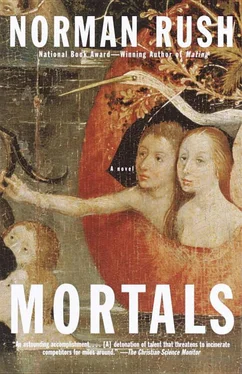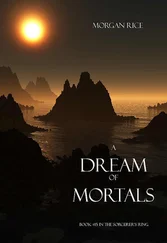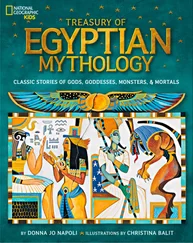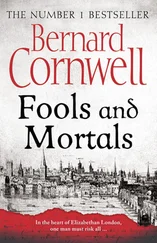“No, you wouldn’t. Because you met him at the doctor’s place when you were attending these sessions he gave, on God and so on.”
“But I never saw you there.”
“No I was never there. But I sent Ponatsego there to see what these sessions were about. I was curious. I suggested he go and then report if it was interesting.”
He wondered if he had the gall to leave it there and not tell more, let his liability stop at that, just be a consequence of innocent personal curiosity on his part.
Kerekang flicked his cigarette, only half consumed, away, high into the air.
Ray tried to rush on, burying his connection with Pony under apologies. “I am so sorry I sent him. I was curious, you know. I couldn’t go myself. All these seminars, whatever you call them, were restricted to Batswana, with no expatriates.”
“So, rra, you sent Ponatsego to me.”
“No, rra, I sent him to see what he could find out about the doctor’s seminars, what was going on there. That was all. It was not about you.”
Kerekang looked coldly at him, it seemed to Ray.
Kerekang said, “Why is it you would do that?”
“I wanted to know, rra. I had personal reasons. And curiosity.”
“And what else?”
“What do you mean?”
“And what else? What would make you send this man, this colleague of yours? Did you tell him to do it as a favor to you, rra?”
“Not as a favor, no. Rra, you are understanding.”
“There was a gratuity, then? Is that right?” Kerekang’s voice was hard.
“There was.” This is it, Ray thought.
“Was it just you yourself providing the gratuity?”
“No, of course not.”
“What was the source of the gratuity then, rra?”
Ray thought, I have to. He said, “I have to explain what I was doing then. Please listen to me.”
“Oh I am listening.” Kerekang was suddenly very sharp.
“First about my interest in the doctor. Rra, he has stolen my wife, who was his patient, and it had just begun. We need not say more about this. What I need to tell you is that I was working for the American government, apart from my teaching job at St. James’s, working for the American government.”
“I am still listening. And I am sorry, rra, to hear the other.”
“I was working for an American intelligence service.” He had to lie about his connection because he couldn’t bear to say he hadn’t yet quit, that he was still a member of the agency. He couldn’t. He had done something, some things that ought to show he was free of that, in Kerekang’s eyes.
Kerekang was shaking his head.
Ray said, “I am through with them, Kerekang.” He thought that was fair, and covered the situation, except for the papers he would have to sign.
Kerekang said, “Well it is good you say all this, because it is no secret to me that you were an agent, a spy, really. That was what was said.”
Ray didn’t know what to feel. Apparently knowledge about his status had been universal. He had been an actor in a different play than the one he had thought he was in. He wondered how much Iris had known about his nakedness. He had to believe she would have told him. He hadn’t completely believed Morel, he had thought Morel probably just had suspicions, which he had made Iris confirm. Ray had known that Boyle was generally understood to be in the agency. But he had never truly thought that he himself had been picked out. It was odd to think he wouldn’t have seen that in people’s faces.
Kerekang was mentioning three other people he was also under the impression belonged to the agency. None of them were right. None of them had anything to do with the agency. Unless he was in the dark, in the wrong compartment. He was uncertain about everything. He wanted to say definitely that Kerekang was wrong, but he couldn’t, not with any conviction.
“So you have left this organization,” Kerekang said.
“I am out of it. But I have to be sure you understand. When I sent Pony to report on the doctor, it was for my own, my own personal information. This is complicated. The head of our office is Boyle, Kerekang, Chester Boyle. He wanted me to pursue you and I was opposed and I told him so. I said to him you were a patriot and an intellectual and a reformer and a good man. Of course now you are burning the countryside to ashes and I am helping you, so life is very strange. I am sorry to say that I believe the agency was behind some of your troubles in getting employment with the government. I had nothing to do with that. No, and the fact is that when Boyle said I should look more into you, more than I had, because I had done some looking, my idea was to tell him that the best way to find out more about you was through these seminars, where you would participate, at our friend Doctor Morel’s house. And you know why I wanted to know more about the doctor. I hated him then. So I thought I could appease my boss by sending Pony to bring reports on these seminars where you were a participant. But Kerekang, nothing he brought to me was ever turned over, never. I swear to this.”
In a way he didn’t care what Kerekang said next. He was full of lightness. He would sleep well, he knew. Of course he was on the ragged edge physically, which would help. He was looking forward to sleep. Sleep would be different now. He was full of lightness.
Kerekang interrupted. “We know him. Nyah, rra, he is well known. And the one before him, the Jew.”
Ray recoiled. He was shocked. He wanted to protest, say something, affirm his friend Marion, use his name to show he esteemed him. He was distressed that Marion had been as readily identified as the egregious, the cack-handed, as the Brits would put it, Chester Boyle. It was unfair. Resnick had been subtle in everything. And it was unfair, calling him the Jew, identifying him that way. Ray had determined that he was going to help, or to put it another way, save Kerekang, and he needed to like him as much as he could. Kerekang was his new friend, his new friend. The man didn’t know it yet, but it was the truth. Iris had been his friend, but now she was dissolving, and Marion was gone. He had not lived a life where he could normally acquire friends.
“You don’t have anything against Jews, do you, you’re just saying the guy who came before Boyle was Jewish.” He hadn’t put it quite right, but it was the best he could do.
Kerekang was saying something, vigorously. “Ah, no. Even Jesus was one of them. I am not an anti-Semite, rra.”
That was a relief. He moved on. He said, “Look I want you to consider getting out of this, how to get out of this.”
“What do you mean? But speak quietly.”
“Right. Because we can both of us see where this is going. You know what a jacquerie is, where everybody in the countryside goes on a rampage and tears up the pea patch but not in favor of any sort of program, just to destroy the old order and then the old order or its friends come back like thunder and make it worse than before …”
Kerekang said, “Do you know this, that some of us are taking cattle, robbing them from the Baherero, which was not what we set about. When we killed the beasts, it was to deprive the big men who had come out into the sandveld. Even so, I wanted the slaughtering part to stop once we had shown we have the power up here. Of course you can say it ran on too long and I will agree, and I have tried to stop it. But the killing was to shock the letleke, the ones with too much. And when the killing stopped, still it would hang over them, and they could see it would be useful to help Ichokela in future.”
Ray was surprised. Because what this looked like was a sort of extortion scheme to get money or other resources from the cattle-owning elite to be put to use in Kerekang’s social program, his homestead socialism, whatever it should be called. He could see how it had happened. Kerekang had fallen into it, allowed things to happen and then taken steps based on what he had allowed to happen, trying to turn mistakes made, or accidents, to the advantage of his group, his great project. This was a confession. Kerekang was very agitated.
Читать дальше












